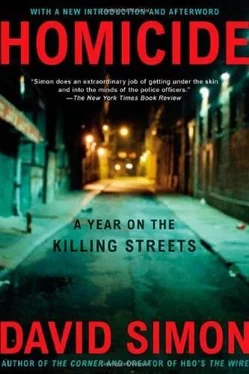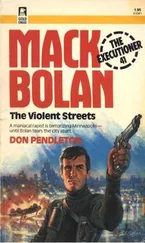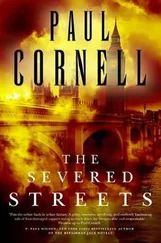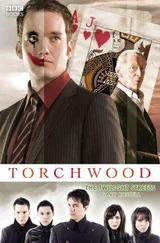Moulter shrugs, staring at the undergrowth and trash that mark the dead end of Calverton Road and the edge of the Amtrak railbed. The place has long been the favored hole in Sector 2 of the Western-a deserted spot to drink coffee and write reports, or share a six-pack, or maybe get a little sleep if you were scheduled for court in the morning.
McLarney turns to Biemiller. “What do you think?”
“What do I think?” asks Biemiller.
“Yeah. We won it for him, didn’t we?”
“No,” says Biemiller. “We didn’t win.”
Moulter nods his head in agreement.
“I don’t mean it like that,” McLarney says, backing up. “I mean we got the verdict. Gene’s got to be pleased with that.”
Biemiller says nothing; Moulter heaves an empty can into the underbrush. From the railbed comes a sudden flourish of noise and light as a metroliner races east along the center track. The train disappears in a long wail that sounds very much like a human voice.
“It’s fucked up, isn’t it?” says McLarney after a time.
“Yeah, it is.”
“I mean here’s a guy that’s like a war hero,” says McLarney. “This is a war and he’s a hero. You know what I mean?”
“No.”
“Vince, you see what I’m saying?”
“What do you mean, Terry?”
“Lemme tell you something,” says McLarney, his voice catching up to his anger, “and this is something that I told Gene. I told him he has to see that he didn’t get shot for Appleton Street. Fuck Appleton Street. Fuck that. Fuck Baltimore. He didn’t get shot for Baltimore.”
“What did he get shot for?”
“It’s like this,” says McLarney, “and I told this to Gene. I told him that there’s this war going on in America. It’s a fucking war, right? And Gene was a soldier who got shot. He was defending his country and he got shot. Like any other fucking war.”
Biemiller throws an empty can toward the undergrowth. Moulter rubs his eyes.
“What I’m saying is that you have to forget it’s Baltimore,” says McLarney, very angry now. “This city is fucked up and it will always be fucked up, but that isn’t normal. Fuck Baltimore. Gene was a police in America who got shot and there are places where he would get treated like a war hero. Do you see that?”
“No,” says Biemiller. “Not really.”
McLarney slowly deflates, unable to sustain the rage without help. “Well, Gene does,” he says quietly, staring across the railbed. “That’s the important thing. Gene does and I do, too.”
McLarney wanders back toward the other side of the car as sunrise streaks the eastern sky red. An early work crew opens the gates to the city yard on Calverton Road; ten minutes later, a public works truck rumbles down to the pumps. At the sound of the truck, Biemiller looks across the asphalt, squinting through an alcohol haze.
“Who the fuck is that?”
A lone figure in blue is standing a few feet from the city yard entrance, glaring at them.
“Security guard,” says McLarney.
“Christ. Not again.”
“What the fuck does he want?”
“He saw the beer.”
“So what? Why should he give a fuck?”
The man in blue pulls a notepad and pencil, then begins writing. The cops respond with obscenity.
“Christ, he’s taking tag numbers.”
“Well,” says Biemiller. “Party’s over. See you boys around.”
“No point waiting around for the IID number,” says another. “Let’s get gone.”
They toss the last few cans in the underbrush, then climb into their cars. Two cars and a pickup peel off and run a gauntlet past the security guard and out onto Edmondson Avenue. Back behind the wheel of his Honda, McLarney gauges the effects of the beer, then calculates the number of state troopers between his current location and his home in Howard County. The resulting odds seem improbable, so he drives east through the scattered Saturday morning traffic, turning south on Martin Luther King Boulevard and arriving minutes later at the South Baltimore rowhouse that is the home of a friend who had been among them on Calverton Road. McLarney stands on the stoop in the new day’s light, the morning paper rolled in his right hand. The friend arrives a few minutes later.
“Got a beer?” asks McLarney.
“Jesus, Terry.”
McLarney laughs, handing the younger man the paper. The two make their way through the door and McLarney wanders into the first-floor living room.
“What a dump,” says McLarney. “You need to get a maid or something.”
The younger man comes back from the refrigerator with the paper and two bottles of Rolling Rock. McLarney sits on the sofa and pulls apart the newspaper, looking for a story about the Cassidy verdict. He scatters sections across the table before finding the article on the front of the local section, below the fold. The story is brief, maybe a dozen paragraphs.
“Kind of short,” he says, reading slowly.
He finishes the story, then rubs his eyes and takes a long drag on his beer. Suddenly, finally, he is exhausted. Very drunk and very exhausted.
“It’s so fucked up,” he says. “You know what I’m saying? Does everybody else see how fucked up it is? Does anyone see that? Do normal people see something like this and get pissed off?”
Normal people. Citizens. Human beings. Even among the believers, there is a pathology to being a cop.
“Fuck, I’m tired. I got to get home.”
“You can’t drive.”
“I’m okay.”
“Terry, you’re fucking blind.”
McLarney looks up, startled at the word. Again he picks up the local section. Again he scans the story, looking for the things that never manage to find their way into newspaper accounts.
“I thought they’d do more,” he says finally. McLarney tries to fold the paper, crushing it awkwardly in his left hand.
“Gene did good though, didn’t he?” he says after a pause. “He was good on the stand.”
“He was.”
“He got respect.”
“He did.”
“Good,” says McLarney, his leaden eyes closing. “That’s good.”
The sergeant leans his head back against the wall behind the sofa. His eyes close at last.
“Gotta go,” he says in a slur. “Wake me in ten…”
He sleeps like a still life, sitting up, his right ankle to his left knee. The crushed newspaper is in his lap, the half-empty beer can is surrounded by the meat of his right hand. The sport coat stays on. The tie is twisted but intact. The wire-frame eyeglasses, bent and battered from a half dozen near-misses, have slipped down his nose. The badge remains in the upper right coat pocket. The gun, a silver.38 snubnose, stays holstered to his belt.
WEDNESDAY, JUNE 8
Print hit.
When the human mind has exhausted itself, technology flexes a muscle and creates a clue of its own. Diodes and transistors and silicon chips produce a connection as the swirl pattern on a right index finger is matched to a name and address. Each ridge, each curve, each imperfection is noted, catalogued and compared until the verdict of the Printrak computer is certain:
Kevin Robert Lawrence
D.O.B. 9/25/66
3409 Park Heights Avenue
Like any of its species, the Printrak is an unthinking beast. It knows nothing of the case file, nothing of the victim, and virtually nothing of any suspect it happens to identify. And it cannot ask the questions that necessarily follow from its discoveries. That is left to a detective, who stretches his cramped legs across a metal desk and stares at a printout sent upstairs from the lab’s ident section. Why, he wonders, does Kevin Robert Lawrence’s fingerprint appear on the inside cover of a library book on Afro-American heroes, Pioneers and Patriots? And how can it be, he inquires further, that this same book is somehow one of those found in the satchel of a murdered child in Reservoir Hill?
Читать дальше












